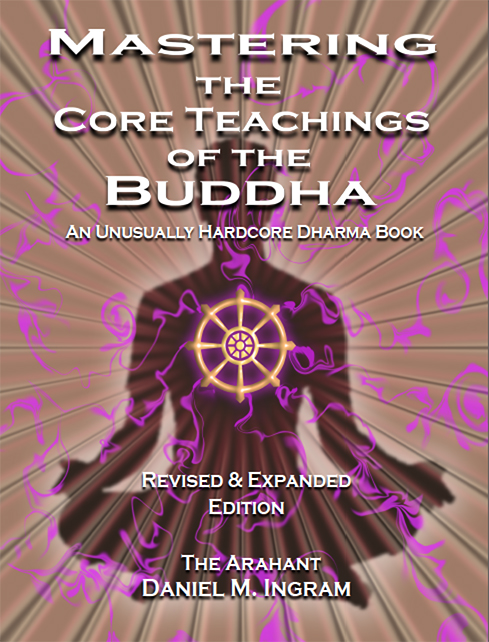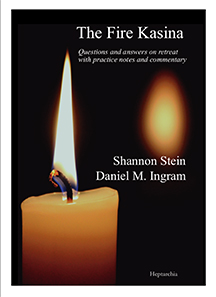62. Those Damn Fairies …
← 61. Crazy? | 63. Definitions of the Powers →
Beyond questions of mental illness being mixed with meditation experiences, problems can arise when people who are not into the powers start having them, such as when people who are not into fairies start seeing the pesky things, or start having whatever unusual experiences for which they were not prepared and have an active or subconscious prejudice against. You thought of yourself as an ordinary person in an ordinary world, a sane and predictable world (okay, perhaps you are not that naive and delusional, but you get what I mean), a non-magickal world, a material world, a rational world, a world that behaved as you thought it did, according to laws you thought were unchanging. You were a muggle through and through. You have a specific tribal identity that requires you to have a fixed worldview that precludes some or all of these experiences. Suddenly your experiential reality seems to contradict that entirely.
For example, you think there are no magickal effects possible and suddenly you are seeing chakras and seem to know odd things about people that you couldn’t possibly know, as is not so uncommon in the stage of the A&P. You saw the room you are meditating in through closed eyelids, something you thought was impossible. Many variations on this basic theme are possible. You think of yourself as a Buddhist, and suddenly a powerful vision of Jesus Christ or the Virgin Mary appears to you, flooding your body with light and love. You think of yourself as a strictly atheistic scientific materialist, and suddenly you have a series of extremely compelling experiences that give you the profound impression that you can manipulate people’s moods just using your mind and that in a past life you were a celestial goddess. In short, you have a paradigm-experience collision and, perhaps more to the point, an identity-experience collision.
We tend to be pretty invested in the way we relate to all sorts of experiences, with the powers being high on the list of things people tend to be rigid about. Plenty of us cling tightly to our sense of reality despite all the evidence to the contrary. I have spent a lot of time talking with people about their various beliefs, and it is amazing how complex and nuanced people’s beliefs are about things they may not even initially admit to believing in. These conversations can be a lot of fun if you set them up well and people are in the right mood and context to have them. If you keep inquiring deeper, you will find that people who initially present as being relatively simple paradigmatically are revealed to be much more complex and nuanced than either you or even they imagined.
For example, I know people who believe in God and ghosts but don’t believe in any other magickal creatures. I know of people who, while believing in and relying on psychics, also identify as atheists. I know someone who will tell you that all this stuff about magick is clearly delusional, but on more careful questioning believes that they have accurately predicted the future a few times, can cast dark energy at people to harm them if they are not careful, still actively regrets a specific time that they did that decades ago, and is sure that we retain somewhere within us the collective memories of all our ancestors.
That sort of initial skepticism overlaying a somewhat contradictory and yet nuanced belief system regarding the powers is normal, it turns out. The reality is that when people experience something that defies their specific list of what they consider normal magickal stuff and what they consider crazy magickal stuff, then people can get freaked out and sometimes come up with all sorts of harmful and unskillful responses to what just happened. Even before they start having interesting experiences that they didn’t expect they could have, just being exposed to people talking about those things can turn people off, hence the problem with mentioning the powers at all in a book that has insight maps that should be taught in high school as part of a standard curriculum on human health and biology. Hopefully someone will write that textbook, as this book isn’t going to be it, or at least not in Texas …
Since I have mentioned angels, demons, devils, and fairies, I should discuss how magickal experiences of other beings can raise the obvious question about what beings might exist in the magickal world and how we relate to them. Buddhism is filled with a vast array of magickal beings who reflect the underlying mythology of the area at the time as well as the cosmology of the various worlds and the thirty-one planes of existence. In fact, were one to read the texts without any preconceptions about Buddhism, one could easily conclude that Buddhism was mostly about animism, shamanism, morality, and magick with a bit of insight thrown in onto the top like a cherry. In addition to humans, this list of various spirit beings typically includes various high gods, lower gods, spirits of various places that show a heavy animist flavor, hungry ghosts, hell beings, not to mention demons, giant snake spirits called nagas, as well as giant flying beings called garudas. Add in various tantric beings and suddenly the list gets a lot longer.
One of the defining aspects of magick in Buddhism is that mastery of the powers is judged primarily by the skillful use and understanding of them, not the raw power itself. While Buddhism has techniques that can produce stunningly powerful magick (again, the kasinas should not be underestimated), the texts are constantly emphasizing that it be used only for some good purpose, directed to kindness or wisdom, and not become a source of attachment, arrogance, or harm. It is not that every spontaneous magickal experience will necessarily clearly be a source of wisdom or compassion, but every directed one should aspire to be. This difference becomes particularly striking when we examine aspects such as the relationship to various magickal beings.
Some non-Buddhist magickal traditions might emphasize techniques to summon, bind, and control magickal beings, while others might enter some sort of bargaining or bartering relationship to beings. Others might worship powerful beings whose favor or boons they covet and humbly request. In Buddhism, however, particularly if we read the old texts (the Sutta Nipata is a fun example), we notice again and again that the emphasis is a more skillful relationship to beings. The Buddha set the example by being kind to beings, teaching them the dharma, radiating loving-kindness to them, and relating to them in ways that were fearless and wise. The Buddha was routinely depicted as giving teachings to gods who had great reverence for him and listened with rapt attention. Magical beings become yet another class of beings to try to bring into the wisdom of the dharma. Curiously, there are far more examples of the Buddha skillfully interacting with magickal beings in the old texts than there are careful instructions on meditation practice.
A world full of magickal beings and many vast realms that interpenetrate this universe could be relatively frightening, as we humans are not necessarily at the top of that magickal-being heap, and we are used to being at the top of the heap in this material plane. Instructions in Buddhist texts typically promise that various practices will cause us to have a positive relationship to these beings, which obviously makes Buddhist practice very appealing. It is also explicitly stated in numerous suttas that powerful meditation practice and morality were sufficient protection against attacks by demons, mischievous devas, and spirits in general. Various other practices were described for pacifying hostile spirits, befriending the spirits of a place, and protecting skillful practitioners from harmful entities. Interestingly, once you start to live with a set of experiences that reflects a vastly expanded magickal biosphere and cosmos, you can test out which of these Buddhist practices perform as advertised.
As these practices are explicitly magickally effective for specific purposes, we have come to the place to list the various powers described in the old texts.

